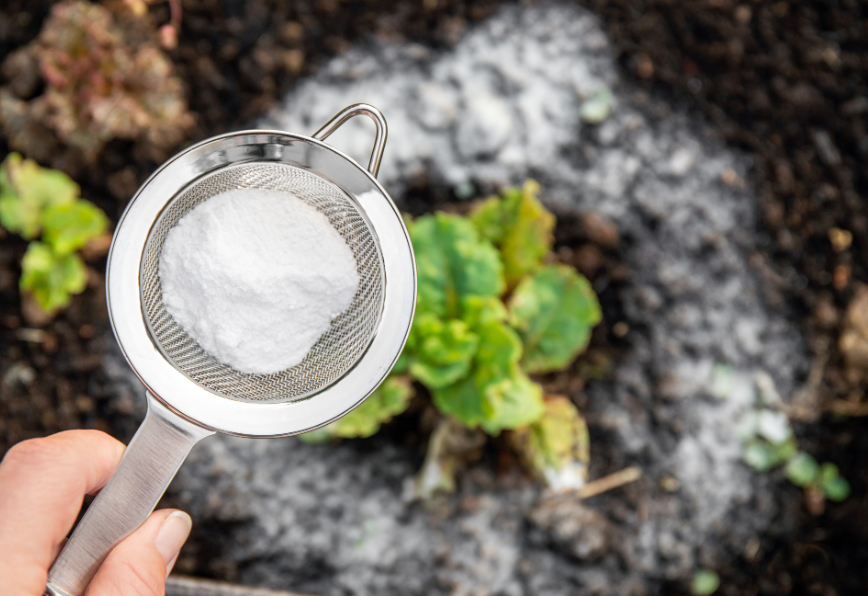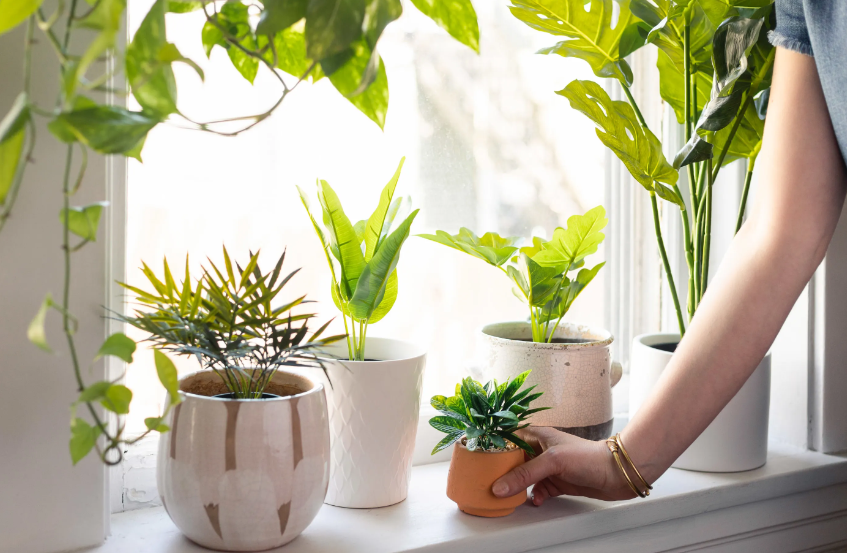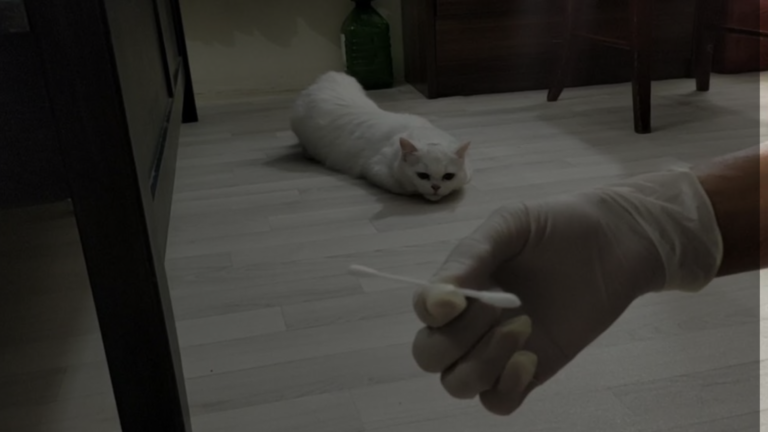Has your garden been overtaken by the unmistakable, unpleasant scent of cat urine? Don’t despair! While the situation might seem dire, several effective methods can neutralize the smell, protect your precious plants, and deter repeat visits from feline freeloaders. Learn how do you neutralize cat urine in soil effectively. Let’s delve into the science behind this problem and explore proven strategies to restore your outdoor haven.
How Do You Neutralize Cat Urine in Soil?
Before tackling the cleanup, understanding the “enemy” is crucial. Cat urine comprises various components, including uric acid, nitrogen compounds, and bacteria. While nitrogen can benefit plants in moderation, the high concentration in urine alters soil pH, making it overly alkaline. This can damage plant roots, stunt growth, and even contribute to plant death. Additionally, the bacteria responsible for the pungent odor can pose health risks to humans and pets if inhaled or ingested.
Neutralizing the Offensive Odor
Now, onto the good part: how to reclaim your fragrant oasis! Here are several approaches, each with its advantages and considerations:

Dilution and Flushing
For light contamination, simple dilution with water might suffice. However, water alone won’t break down bacteria or neutralize the pH shift. Adding a mild soap solution (like dish soap diluted in water) can provide additional cleaning power. Be mindful of overwatering, especially with sensitive plants, and ensure proper drainage to avoid harming root systems.
Enzymatic Cleaners
These targeted bio-weapons are your secret weapon against odor-causing bacteria. They contain live enzymes that “eat” the bacteria, effectively eliminating the source of the smell. This eco-friendly approach is safe for plants and soil, making it a popular choice. Read product labels carefully for specific application instructions and choose a reputable brand.
Baking Soda’s Power
This kitchen staple offers a natural option for neutralizing acidity. Sprinkle baking soda generously over the affected area and let it sit for several hours. Then, thoroughly water to flush it into the soil. While effective for mild cases, baking soda might not be powerful enough for heavy contamination. Avoid using it near acid-loving plants.

Exploring Other Natural Options
Diluted white vinegar has shown some success in neutralizing odors due to its mild acidity. Coffee grounds absorb odor and deter cats, but their effectiveness varies. Citrus peels act as repellents but might harm beneficial soil microbes. Research these options cautiously and test them on a small area first.
Important Considerations
Addressing the Source
Remember, prevention is key! Identifying and deterring the culprit cat is crucial to prevent future issues. Humane strategies like fencing, motion-activated sprinklers, and cat repellents can discourage uninvited guests. Address underlying medical problems or behavioral issues in your cat with a veterinarian or animal behaviorist.
Soil and Plant Safety
Always test any chosen solution on a small, inconspicuous area first to ensure it won’t harm your plants. For heavily contaminated soil or sensitive plants, consider removing the affected soil or seeking professional cleaning services.

Thoroughness and Follow-Up
Stubborn odors might require repeated applications and patience. Monitor the area for signs of improvement or persistence. If the problem persists, consider consulting a professional.
Additional Tips
- Professional Cleaning: For extensive contamination or complex situations, professional services specializing in pet odor removal can be invaluable. Research and choose a reputable provider with experience in soil treatment.
- Landscape Design: Incorporate deterrents like gravel, mulch, or specific cat-repellent plants into your landscaping design to discourage future incidents.
- Cat Behavior and Training: Addressing underlying causes like health issues or behavioral problems in your cat can prevent future “accidents.” Consider consulting a veterinarian or animal behaviorist for guidance.

Conclusion
By understanding the science behind cat urine, following these effective neutralization methods, and implementing preventive measures, you can reclaim your garden from the clutches of unwelcome odors. Remember, prompt action and a little know-how are all you need to restore your green haven to its aromatic glory. So, breathe easy, roll up your sleeves, and get ready to enjoy your outdoor sanctuary once again!
Resources & References
- American Society for the Prevention of Cruelty to Animals (ASPCA): https://www.aspca.org/pet-care
- The National Garden Association: https://garden.org/
- PetMD: https://www.petmd.com/
- University of California, Davis: https://www.ucdavis.edu/
Disclaimer: This article is for informational purposes only and should not be construed as professional medical or veterinary advice. Always consult with a qualified professional before making any decisions regarding your pet’s health or behavior.
FAQs About Neutralizing Cat Urine in Soil
How long does it take for cat urine to break down in soil naturally?
The breakdown time depends on various factors like temperature, sunlight, soil composition, and urine concentration. In warm, sunny conditions with well-draining soil, it can take several weeks to months for complete natural breakdown. However, the odor might linger much longer, and the alkaline residue can harm plants.
Will cat urine kill my plants?
Direct contact with concentrated urine can damage or kill plants. Additionally, the high nitrogen content and altered soil pH can stunt growth and weaken plants, making them more susceptible to diseases. It’s crucial to neutralize the urine promptly to protect your plants.
Should I remove the contaminated soil altogether?
For light contamination and healthy plants, thorough cleaning and neutralization methods are usually sufficient. However, if the soil is heavily saturated, the odor persists, or plants show significant damage, removing the affected soil (around 12 inches deep) and replacing it with fresh soil might be necessary.
Are commercial cat repellents effective in preventing future incidents?
Commercial repellents can be helpful deterrents, but their effectiveness varies depending on the cat’s personality and individual preferences. Combining repellents with physical barriers like fencing or motion-activated sprinklers often proves more effective.
Is it safe to use essential oils to neutralize cat urine odor?
While some essential oils like citrus scents might act as repellents, using them directly on soil can harm plants and beneficial soil microbes. Additionally, essential oils can be toxic to pets if ingested. Opt for safer alternatives like enzymatic cleaners or diluted white vinegar.
What should I do if I suspect my cat is urinating outside the litter box due to a health issue?
If you notice changes in your cat’s litter box habits or suspect a medical problem, prioritize consulting a veterinarian right away. Underlying health conditions like urinary tract infections, bladder stones, or diabetes can manifest as inappropriate urination. Early diagnosis and treatment are crucial for your cat’s well-being.







